Silly Duffers

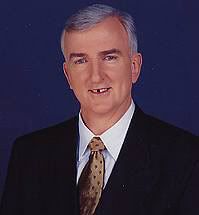
Messers Duffy & Pascoe: would you buy a used car from these
Off yer bike - for the sake of all of us on the roads
It's time to get bikes off our roads. As a mainstream form of transport, the bicycle has proved itself the equivalent of communism: a lovely idea that failed dismally in practice. Bikes are dangerous to ride and slow traffic, which creates more pollution. For the good of all of us, we need to ban the bike.
*ahem* *cough* Now where was I .... cfsmtb management cannot add anything further of significance to this dialogue, other than what's been previously mentioned about Messers Duffy and Pascoes neo-surrealist anti-cycling diatribes. SMH readers feedback said it all. Mondays Crikey email included several ripper Your Say comments. Oh, referring to the immature images featured above, one indulged in estimated 30 seconds tweaking around in 'shop. And I humbly realise this is nowhere near Fluteys extraordinary expertise.
Final bookends on the subject: we present the obligatory aus.bicycle saga, and the Crème de la Crème with Farkins *Insert childish farting noise here*. A superb critique.
Lite relief, yesterday we also indulged in a spot of subtle monkeywrenching (ie: the "find - replace" function) and scored at least one sucker. tee-hee. In more serious bicycle advocacy news, pop over to Bicycle Justice for Team WoJ plans at Januarys Amys Ride. Also I'll have a update soon regarding The Wrath of the H*lm*t Gods incurred riding home from Melbourne Cup on Wheels. Not comfortable reading. Are some cyclists being monitored by an malignant omnipresent force..? With luck, by this time tomorrow, my normal bodily functions should return with the ability to (a). breath deeply (b). sneeze without pain (c). bend normally.
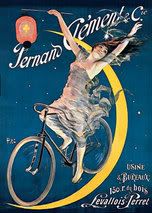


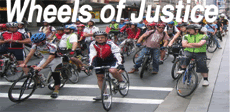





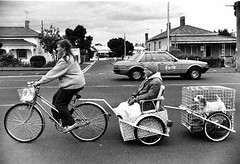
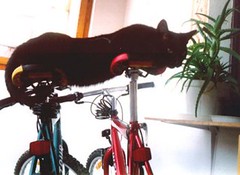
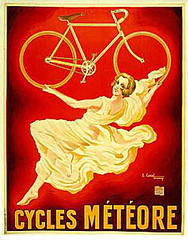
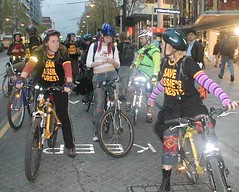
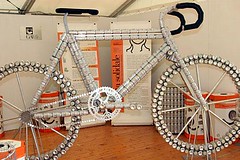



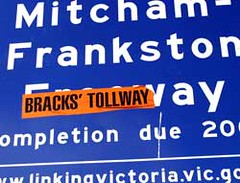
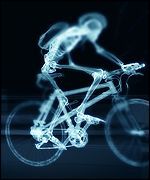







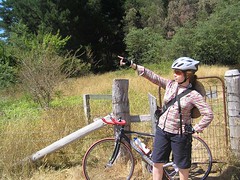
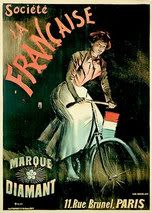
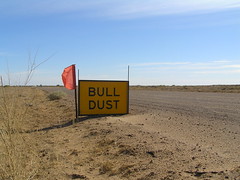


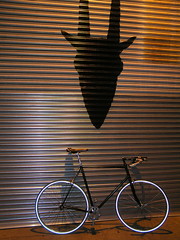


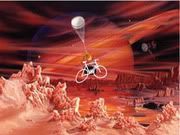
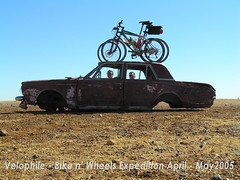
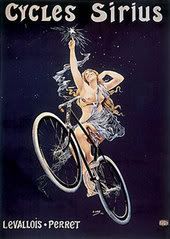
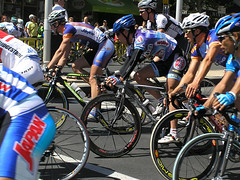

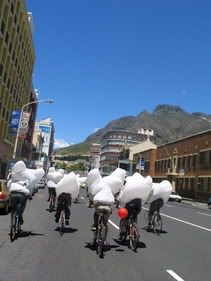
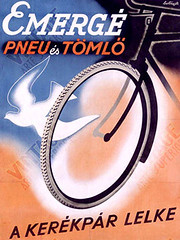

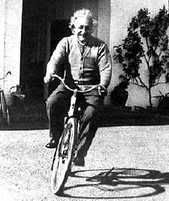

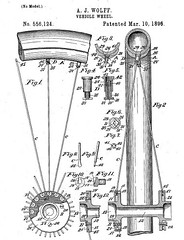
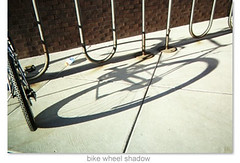
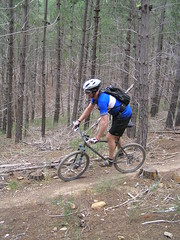
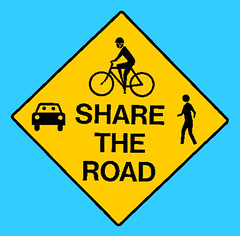
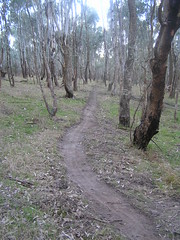
3 Comments:
Memo to Pascoe: Fire up google and conduct at least a junior high-schooler's study of "transport economics". Jackass.
You expect the odd brain fart from dullards like these. Here is an absolute bum-trumpet from a bunch of people who should know better:
http://alternet.org/story/27723/
By Anonymous, at 2:48 am, December 08, 2005
Anonymous, at 2:48 am, December 08, 2005
You will like this! ;-)
Cycling is a healthy way to break the iron grip of the car
http://smh.com.au/news/opinion/cycling-the-way-forward/2005/12/07/1133829660316.html
December 8, 2005
In Europe and North America the benefits of bike riding are obvious, write John Pucher and Adrian Bauman.
IT WAS rather amazing for a United States professor of transport and urban planning to come to Sydney and read the bike-bashing article by Michael Duffy in the Saturday Herald. Federal, state and local governments in both the US and Canada have been vigorously promoting cycling, through generous funding and pro-cycling planning regulations. The result has been considerable growth in cycling in both countries.
We are yet to hear any transport expert in North America complain that bikes generate roadway congestion or air pollution. On the contrary, cycling is widely viewed as complementary to improved pedestrian and public transport facilities. It is an essential part of an integrated strategy to offer everyone a more viable, more environmentally friendly and healthier alternative to the private car.
Of course, the contrasts with Europe are much greater. In the Netherlands, Germany, Austria, Switzerland and Denmark, for example, more than a tenth of all trips in urban areas are by bike. Even among people aged 75 or older, more than 5 per cent of trips are by bike. Cyclists are not a fringe group. They comprise all ages, professions, incomes and both sexes.
There is a clear health benefit as well - rates of obesity are only a third as high in the Netherlands and Denmark, where cycling is universal, compared to North America and Australia. If we are to take the worsening obesity epidemic in Australia seriously, then even small increases in our active travel, such as biking to the shops or with the kids to school, help to meet our daily needs of half an hour of moderate physical activity.
Europeans produce less than half the greenhouse gas emissions of Australians, and almost all the difference is due to greater car dependence in Australia. Increasing cycling, as well as walking and public transport use, are essential strategies to save energy and reduce greenhouse gas emissions. But it is also crucial for Australians to increase their daily physical activity, simply by integrating active transport into daily routines. That would directly help all Australians by improving their health, but it would also reduce congestion, air pollution, energy use, greenhouse gases, parking problems and the inherent danger of motorised travel.
One wonders upon reading the article by Duffy whether he would like to turn Sydney into the endless sprawl of Detroit or Atlanta, where there is virtually no alternative to the private car. Evidently, he feels that the car is the only acceptable way to get around, and that all other modes should be eliminated, thus forcing everyone to drive for all their trips. Surely, he must feel that buses and pedestrians get in the way of cars just as much as cyclists. In short, he wants to eliminate choice in means of travel. It would be one sure way to destroy the liveability of Sydney. That sort of car-dependent sprawl would be completely contrary to the newly released metropolitan plan, which calls for enhancing the viability and safety of cycling, walking and public transport. All three are essential alternatives to the car.
It is unfortunate that cycling in Sydney has such a marginal status, so marginal that a piece such as Duffy's is even possible. In the highly liveable cities of Europe and Canada, cycling is an essential part of transport systems. Contrary to Duffy's assertion that cycling is inherently unsafe, cycling in Denmark, the Netherlands and Germany is quite safe indeed, with clear cycling infrastructure within and between cities, and less than a third as many cycling fatalities per bike trip as in Australia.
So, it's "On yer bike, or feet, or the bus". An integrated transport system with choices for Sydneysiders will be consistent with the Government's long-range policy, good for our individual health, and make Sydney the liveable, bikeable, walkable city it should be.
John Pucher is professor of urban planning at Rutgers University, New Jersey, and visiting professor, Institute of Transport Studies at the University of Sydney. Adrian Bauman is professor of public health at Sydney University.
By Anonymous, at 4:33 pm, December 08, 2005
Anonymous, at 4:33 pm, December 08, 2005
Pascoe lives in Glenhaven in NW Sydney, a semi-rural area where there's a complete dearth of safe cycling lanes (specifically Old Northern Rd), outside of his neighbourhood, anyway.
If there's cyclists in the way of cars out Pascoe's way, it's the roads at fault, not the cyclists.
By Anonymous, at 9:36 am, December 13, 2005
Anonymous, at 9:36 am, December 13, 2005
Post a Comment
<< Home